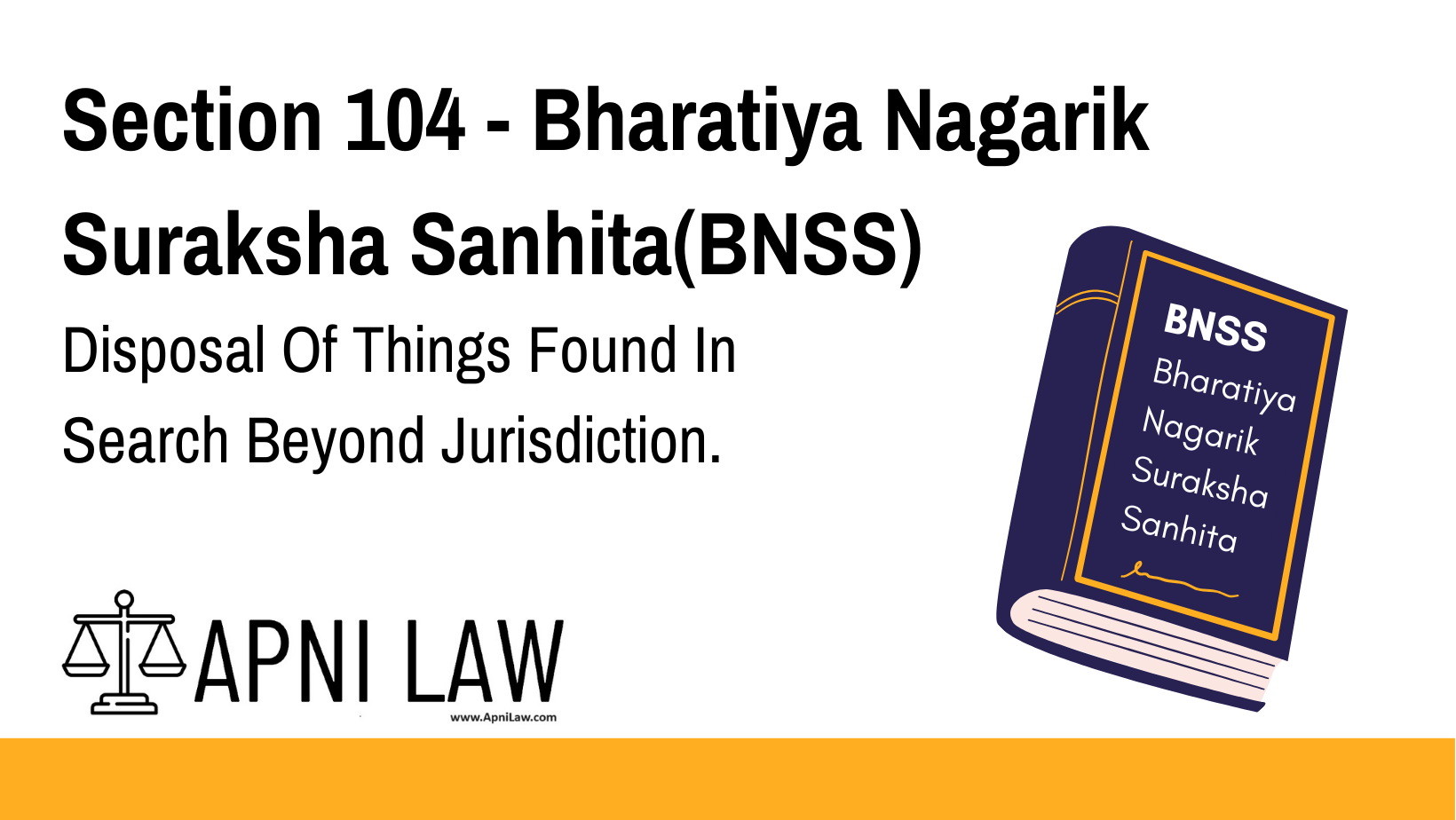Code:
When, in the execution of a search-warrant at any place beyond the local
jurisdiction of the Court which issued the same, any of the things for which search is made,
are found, such things, together with the list of the same prepared under the provisions
hereinafter contained, shall be immediately taken before the Court issuing the warrant,
unless such place is nearer to the Magistrate having jurisdiction therein than to such Court,
in which case the list and things shall be immediately taken before such Magistrate; and,
unless there be good cause to the contrary, such Magistrate shall make an order authorising
them to be taken to such Court.
Explanation
Section 104 deals with situations where a search warrant issued by a court is executed outside the court’s jurisdiction. It establishes a procedure for handling any seized items and the documentation associated with the search. The section ensures that the seized property is presented to the appropriate court or magistrate promptly and appropriately.
Key Provisions:
- Execution Beyond Jurisdiction: If the search warrant is executed outside the issuing court’s jurisdiction and items are found, the seized items and the list of items must be brought before the issuing court.
- Exceptions: If the place where the search is conducted is closer to a magistrate’s court within that jurisdiction, the items and the list should be taken before that magistrate instead.
- Magistrate’s Order: If the items are brought before a local magistrate, they must order the items to be transferred to the issuing court unless there is a valid reason not to do so.
Illustration
Example 1: Search in Another District
A police officer executes a search warrant in a different district than the one where the warrant was issued. Upon finding the items, the officer takes the items and the list of found articles to the magistrate in that district. The magistrate then authorizes the items to be taken back to the original issuing court.
Common Questions and Answers
1. What happens if items are found during a search outside the issuing court’s jurisdiction?
- Answer: The items and the list of seized property must be brought before the issuing court, unless the place where the search took place is closer to a magistrate with jurisdiction.
2. Can a magistrate refuse to authorize the transfer of seized items to the issuing court?
- Answer: Yes, a magistrate may refuse to authorize the transfer if there is good cause to do so.
Conclusion
Section 104 of the BNSS ensures that when a search is conducted outside the jurisdiction of the issuing court, proper procedures are followed to secure the seized items and ensure their timely transfer to the correct judicial authority. This provision helps maintain transparency and accountability in the handling of evidence found during searches.








